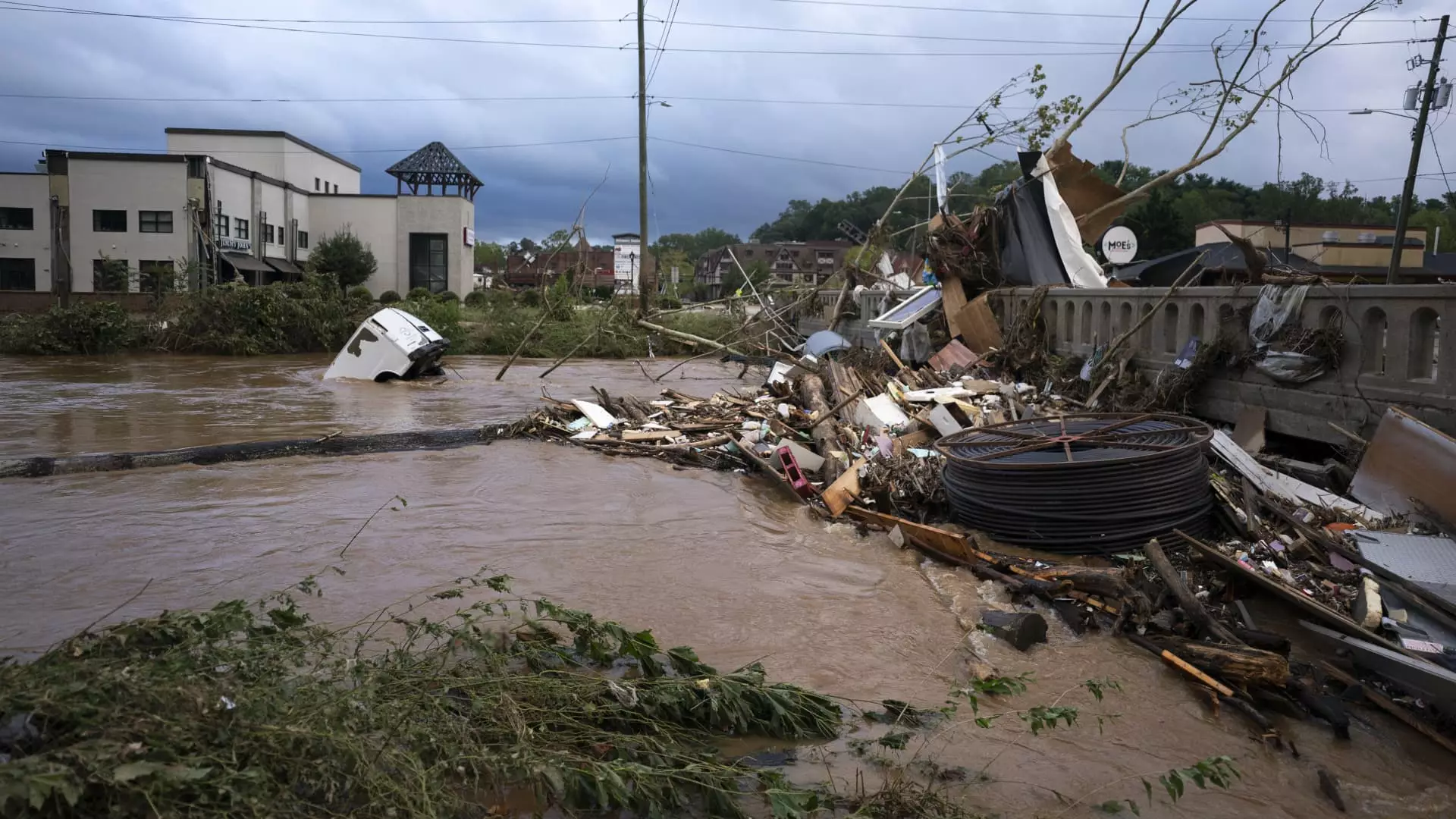The aftermath of Hurricane Helene has left many communities facing not only the devastation caused by the storm but also the looming threat of scams that often accompany such disasters. As residents begin to recuperate and rebuild their lives, warnings from state officials highlight the imperative to remain vigilant against fraudulent activities, particularly price gouging, imposter scams, and unreliable repair services.
Price gouging is a term used to describe the practice of inflating prices exorbitantly, typically for essential goods and services during a state of emergency. Attorney General Josh Stein of North Carolina reported a sharp increase in complaints related to unfair pricing for basic necessities, including fuel and groceries, following Hurricane Helene. Despite the implementation of anti-price gouging laws, more than 100 complaints had been recorded shortly after the storm, suggesting that some businesses are exploiting the vulnerabilities of consumers in crisis.
Stein’s comments reflect a widespread concern: “Most stores are bending over backwards to serve their communities,” yet a minority may seek to exploit the situation for profit. This dichotomy emphasizes the need for communities to be aware of their rights and to understand what constitutes price gouging. For example, a drastic increase in the cost of bottled water or essential tools like chainsaws can be categorized as gouging when prices leap far beyond normal market rates.
As consumers, it’s crucial to recognize the difference between typical market fluctuations and exploitative pricing strategies. South Carolina Attorney General Alan Wilson underscored that while price increases can be expected after a disaster, blatant instances of overcharging are unmistakable.
If you, as a consumer, encounter what you believe may be price gouging, the first step is to approach the business and express your concern in a calm manner. Documenting the evidence—such as taking a photo of the item and its price—can be incredibly useful if further action needs to be taken. Following this, if the business is unresponsive or dismissive, you can report the incident to your state attorney general’s office.
It’s important to note that while anti-price gouging laws exist in 37 states, not all states have established protections, leaving some consumers more vulnerable. Efforts are underway at the federal level, with Vice President Kamala Harris advocating for a national prohibition on price gouging. However, opponents of such laws, including some prominent political figures, caution that they could inadvertently limit supply and exacerbate logistical issues for businesses and consumers alike.
The risk of scams extends beyond just inflated prices. In the chaos following Hurricane Helene, individuals may also find themselves targeted by individuals posing as representatives from government agencies such as FEMA or the Small Business Administration. These con artists often attempt to extract sensitive personal information or fees for services that should be free.
To mitigate these risks, it is crucial that individuals never share personal or financial information with unsolicited contacts, especially those claiming to provide aid or relief. Additionally, door-to-door solicitations for home repairs increase during disaster recovery periods. Residents should exercise caution by verifying contractors and discussing any repairs with their insurance companies before proceeding.
In the automotive market, consumers stepping up to purchase vehicles must be particularly mindful of flood-damaged cars, which can be misleadingly sold at discounted rates. Resources like the National Insurance Crime Bureau’s VINCheck can help in verifying the history of a vehicle to avoid costly mistakes.
In the spirit of helping recovery efforts post-Hurricane Helene, many individuals may feel compelled to donate to charities. However, the potential for charity scams remains high during such tumultuous times. To ensure that donations reach legitimate organizations, it is advisable to research charities through sites such as Give.org or CharityNavigator.org.
State officials are working overtime to protect communities from scams that arise in the wake of natural disasters. They are also urging citizens to stay informed and cautious in their actions both as consumers and philanthropists.
While the aftermath of Hurricane Helene presents numerous challenges, armed with knowledge and vigilance, residents can better protect themselves against the predatory practices that tend to surface in the wake of disaster. By being proactive and informed, communities can aid recovery efforts while safeguarding themselves from exploitation.

